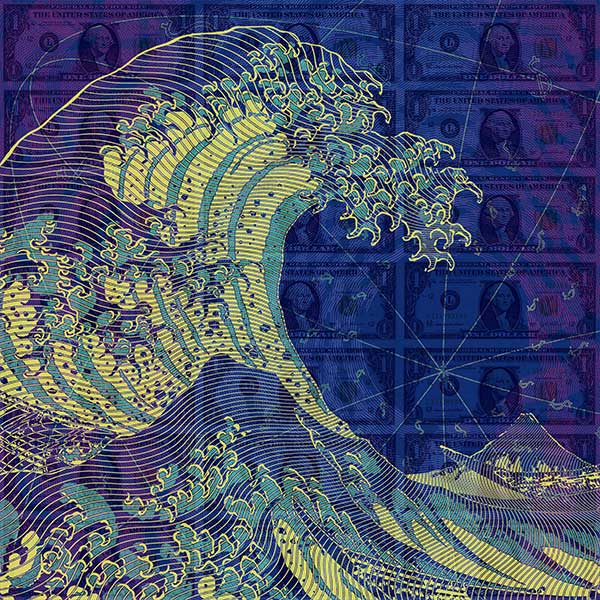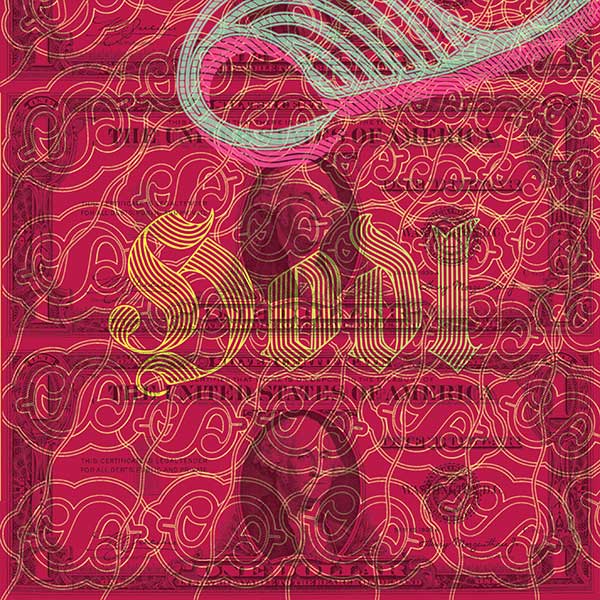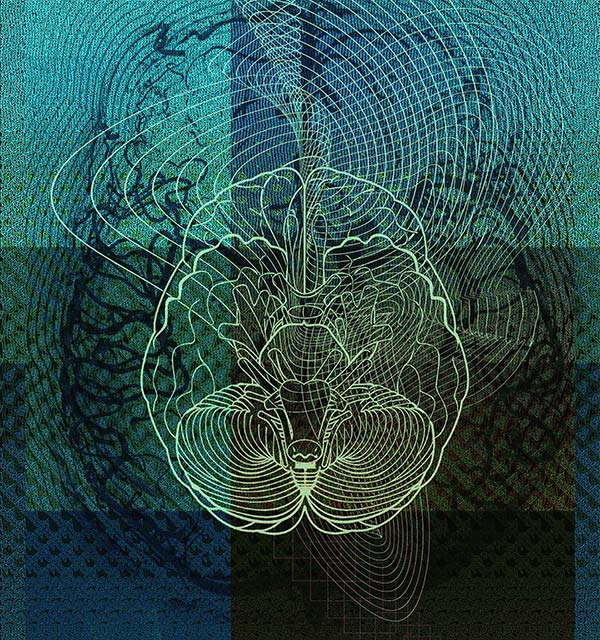Subtotal: $
Checkout-

Poem: “Clair de lune”
-

Poem: “Argument of Periapsis”
-

Poem: “Advent”
-

Editors’ Picks: Thin Places
-

Editors’ Picks: Dinosaurs
-

Editors’ Picks: Natality
-

The Mustard Seed Project
-

Feasting at Teatime
-

Letters from Readers
-

Covering the Cover: Money
-

Hudson Taylor
-

The Effective Samaritan: A Parable
-

The Justice Mothers Are Due
-

The Library at Home
-

Who Deserves Medical Care?
-

A Saver’s Grace
-

Light Came in as a Flood
-

The Other Side of the Needle’s Eye
-

Selling Friends
-

Princess of the Vatican
-

Enchanted Capitalism
-

Leper Colony Sketches
-

In Praise of Costly Magnificence
-

The Last of the Cuban Revolutionaries
-

The Religion of Mammon
-

Pay As You Can
-

Ownership and Communion
-

Saving the Commons
-

History Arrives on the Island
-

On Owning Twenty-Two Cars

Where Your Treasure Is
Five readings from Christian thinkers challenge our assumptions about money.
By Nikolai Berdyaev, Basil the Great, Maria Skobtsova, C. S. Lewis and Dorothy Day
July 20, 2023

Tom Badley, Dollar Wave, giclée on paper, 2016. All artwork used by permission.
Nicolai Berdyaev
Christian piety all too often has seemed to be the withdrawal from the world and from men, a sort of transcendent egoism, the unwillingness to share the suffering of the world and man. It was not sufficiently infused with Christian love and mercy. It lacked human warmth. And the world has risen in protest against this sort of piety, as a refined form of egoism, as indifference to the world’s sorrow. Against this protest only a reborn piety can stand. Care for the life of another, even material, bodily care, is spiritual in essence. Bread for myself is a material question: bread for my neighbor is a spiritual question.
Source: Nicolas Berdyaev, The Fate of Man in the Modern World, trans. Donald A. Lowrie (London: SCM Press, 1935), 123–124.

Tom Badley, Peacock Study, digital sketch, 2014.
Basil of Caesarea
If a physician promised to cure some bodily defect, arising either from birth or as a result of illness, you would not lose heart. But when the Great Physician of souls and bodies, seeing your deficiency in this vital area, wishes to make you whole, you do not accept the joyful news, but rather turn sad and gloomy.…
If you had truly loved your neighbor, it would have occurred to you long ago to divest yourself of this wealth. But now your possessions are more a part of you than the members of your own body, and separation from them is as painful as the amputation of one of your limbs. Had you clothed the naked, had you given your bread to the hungry, had your door been open to every stranger, had you been a parent to the orphan, had you made the suffering of every helpless person your own, what money would you have left, the loss of which to grieve? Had you determined long ago to give to those in need, how would it be unbearable now to distribute whatever was left? At festival time, people do not regret parting with what they have at hand in order to gain whatever is necessary for the feast; rather, the cheaper they are able to purchase valuable commodities, the more they rejoice at receiving such a bargain. But you lament at relinquishing gold and silver and property – that is, stones and dust – in order to obtain the blessed life.
Source: Saint Basil the Great, On Social Justice, trans. C. Paul Schroeder (Saint Vladimir’s Seminary Press, 2009), 43–44.

Tom Badley, HODL #7, NFT, 2019.
Maria Skobtsova
According to the laws of matter, I must accept that if I give away a piece of bread, then I became poorer by one piece of bread. If I give away a certain sum of money, then I have reduced my funds by that amount. Extending this law, the world thinks that if I give my love, I am impoverished by that amount of love, and if I give up my soul, then I am utterly ruined, for there is nothing left of me to save. In this area, however, the laws of spiritual life are the exact opposite of the laws of the material world. According to spiritual law, every spiritual treasure given away not only returns to the giver like a whole and unbroken ruble given to a beggar, but it grows and becomes more valuable.
He who gives, acquires, and he who becomes poor, becomes rich. We give away our human riches and in return we receive much greater gifts from God, while he who gives away his human soul, receives in return eternal bliss, the divine gift of possessing the kingdom of heaven, How does he receive that gift? By absenting himself from Christ in an act of the uttermost self-renunciation and love, he offers himself to others. If this is indeed an act of Christian love, if this self-renunciation is genuine, then he meets Christ himself face to face in the one to whom he offers himself.
Source: Historical Studies of the Russian Church Abroad, copyright © 2008–2023. Used by permission.

Tom Badley, Inspiration, Version X, giclée on paper, 2016.
C. S. Lewis
There is one bit of advice given to us by the ancient heathen Greeks, and by the Jews in the Old Testament, and by the great Christian teachers of the Middle Ages, which the modern economic system has completely disobeyed. All these people told us not to lend money at interest: and lending money at interest – what we call investment – is the basis of our whole system. Now it may not absolutely follow that we are wrong. Some people say that when Moses and Aristotle and the Christians agreed in forbidding interest (or “usury” as they called it), they could not foresee the joint stock company, and were only dunking of the private moneylender, and that, therefore, we need not bother about what they said.
That is a question I cannot decide on. I am not an economist and I simply do not know whether the investment system is responsible for the state we are in or not. This is where we want the Christian economist. But I should not have been honest if I had not told you that three great civilizations had agreed (or so it seems at first sight) in condemning the very thing on which we have based our whole life.
Source: C. S. Lewis, Mere Christianity (London: William Collins, 1952). Extract reprinted by permission.

Tom Badley, Certificate of Authenticity, giclée on paper, 2020.
Dorothy Day
Yes, the poor we are always going to have with us, our Lord told us that, and there will always be a need for our sharing, for stripping ourselves to help others. It always will be a lifetime job. But I am sure that God did not intend that there be so many poor. The class structure is of our making and our consent, not His. It is the way we have arranged it, and so it is up to us to change it. So we are urging revolutionary change.…
To attack poverty by preaching voluntary poverty seems like madness. But again, it is direct action.… To be profligate in our love and generosity, spontaneous, to cut all the red tape of bureaucracy! The more you give away, the more the Lord will give you to give. It is a growth in faith. It is the attitude of the man whose life of common sense and faith is integrated. To live with generosity in times of crisis is only common sense.
Source: Dorothy Day, The Catholic Worker, 45:6, July 1, 1979 and The Catholic Worker, 31:2, September 1, 1964. Catholic News Archive, Catholic Research Resources Alliance. Used by permission.

Tom Badley, Vergissmeinnicht, giclée on paper, 2020.
About the artist: Tom Badley belongs to a small group of designers who work in the banknote industry – designing and printing physical money for central banks. Tom uses these same design processes in his work. He explains: “The pattern generation, the typography, the ‘engraving’ style, and the anatomy of the design itself – every element has been built from the expertise gained from a niche and secretive part of the printing industry – the part that happens to uphold the trust in our financial system.
“What is money? Money is love, fear, greed, life… money is the mirror of humanity. I’ve had a lifelong interest in art and money. The two were always inseparable for me. Art is a way of doing things and money permits things to be done – they are elemental in our world. I use art as a way of meditating on value, trust, and human potential.”
Already a subscriber? Sign in
Try 3 months of unlimited access. Start your FREE TRIAL today. Cancel anytime.













































George Pence
This is a great selection of thoughts dealing with the argument between materialism and Christ’s call to be anything but materialistic. However, let me admit to being flummoxed by thoughts attributed to Maria Skobtsova. In a literal reading, her call to give away the human soul and absent yourself from Christ seems contrary to the gospel. I understand that following the call of Christ involves an act of self renunciation - but to renounce one’s own soul, and the presence of Christ in your life? I get an act of total self renunciation that leads you to the land of Christ… the place where ego is absent. However, I’m still bothered by a sense of personal oblivion that creates a vacuum where the soul and Christ should operate.